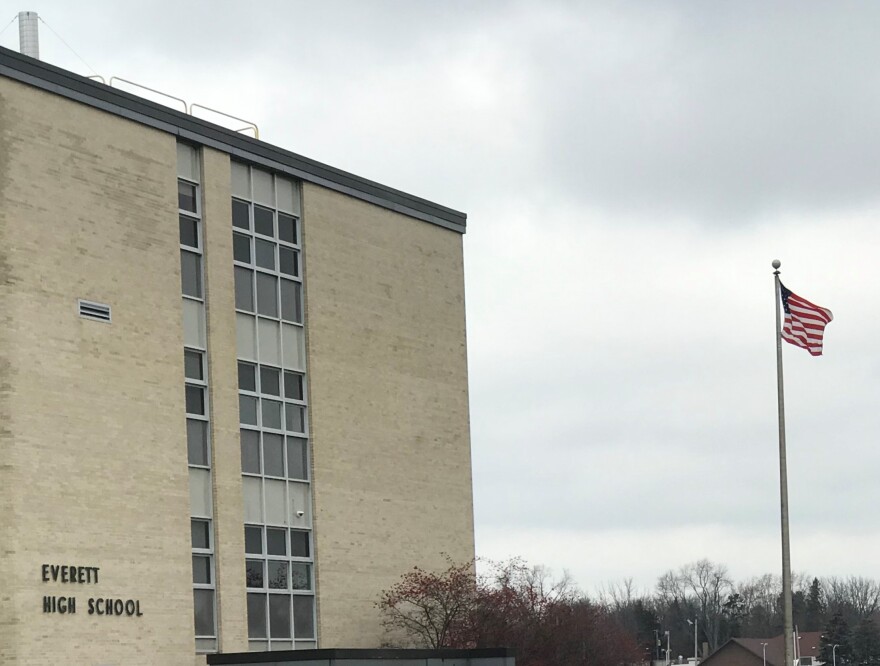The record-breaking turnout of the 2018 midterm election is heading for the history books. For most civics and government teachers, talking to their students about the outcome of an election is a normal part of classroom life. But for some educators, it’s an uncomfortable topic.
The sounds of Election Night 2018 are still echoing in our minds.
And for many of us, the memory of the 2016 presidential election are just as fresh.
Donald Trump’s seemingly improbable victory in 2016 defied polls and dumbfounded pundits.
Its ripple effect even reached public education…where one Michigan State University researcher found a chilling effect on classroom conversation.
“There were a lot of teachers who said they wanted to talk about it, but they didn’t know how, or they were scared to do so,” says MSU assistant professor Alyssa Hadley Dunn.
In a study published in the American Educational Research Journal, Dunn and two colleagues surveyed more than 700 teachers about how comfortable they felt discussing the 2016 presidential election.
They heard back from teachers in 43 states. Dunn says many school districts had written policies forbidding staff from talking about the entire election process. She believes this was rooted in fears that teachers would present biases or sway their students’ minds.
“Teachers said resoundingly that it wasn’t about changing students’ opinions or even sharing their own,” says Dunn. “It was about wanted to hear what students were experiencing and how they were feeling about things.”
Teachers cited many reasons for their political neutrality. Dunn says some believed the topic wasn’t age-appropriate. Some claimed voting preferences are a private matter. Still others said they worried how influential parents would react if teachers revealed their own political leanings to their students.
For her part, Dunn believes it’s OK for a teacher to disclose their personal beliefs.
“Telling them what you believe and why you believe it is a way to help them develop their own arguments about their own feelings,” she says.
Benton Billings doesn’t see it that way.
"As a teacher I’m not going to stand up in front of you and say, ‘hey, I’m a Democrat,’ or ‘hey, I’m a Republican.’”
Billings teaches government at Everett High School in Lansing. His approach is simply to explain to his students the basic tenets of Democratic and Republican ideals.
“You take from each side whatever you like, and that’s a good start for a basis of whether or not you think at this particular time in your life that you’re a Democrat or a Republican,” Billings explains.
Billings describes himself as liberal, and he says his students and their parents generally share that bent. He admits he’s in a sort of bubble, where ideological conflicts are rare.
Dawn Levey understands both education and politics.
The director teacher at Ovid-Elsie Alternative High School is a Democrat who this year ran – and lost – a state House campaign in a heavily red district.
Levey is active in the Michigan Education Association. She says she hears other teachers’ worries about talking politics at school. Levey says that’s especially relevant for younger teachers, whose role is more narrowly defined.
“I think the legislature has gotten far more involved with what goes on in our classrooms than in past,” Levey says. “And that’s occurred over the last 15 years. So yeah, there is some apprehension; how far can I go and what can I discuss in the classroom, especially when it comes to the political front.”
MSU Professor Alyssa Hadley Dunn says the 2016 election caused some sense of political trauma for students and teachers alike. Now, she ponders two questions: did students feel they were given a voice…and did teachers feel empowered to find their own.





